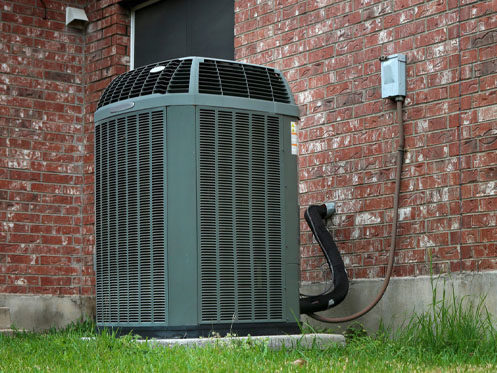When you purchased your air conditioner or heating system, you probably came across the abbreviation BTU. What does this acronym stand for, and how does it serve your HVAC system? BTU stands for the British thermal unit, a metric that measures the energy it takes your HVAC system to add or remove heat in the home. It also determines how powerful your heating system or air conditioning unit is. Below is everything you’ll need to know about BTU and its benefits for your Carrollton, TX, home.
BTU Described In-Depth
As mentioned above, BTU is a unit of energy that stands for British thermal unit. It refers to the energy needed to raise a pound of water by one degree. To calculate BTU, you’ll need to consider temperature and energy.
BTU is an essential concept for your home because it gives you an idea of your HVAC’s heating or cooling capacity. It also helps determine the heating or cooling system you need depending on the size of your home. It might be challenging to understand how BTUs function.
A higher BTU rating shows that your system can heat or cool more air within a given period. For example, if your heater has a rating of 4,000 BTU, it means that it has the potential to produce 4,000 BTUs of energy in an hour.
What Is a BTU Calculator?
This is a calculator used to estimate the BTUs needed to heat or cool your home. HVAC technicians use it to estimate the cooling and heating needs of your home. They also use it to find out the energy needs of a window air conditioner for a small apartment or the whole house.
How Many BTUs Are Enough for Your Home?
Before installing your HVAC system, our technicians at Dring Air Conditioning & Heating use BTU rating to determine the correct size of the heater, heat pump, or air conditioner for your home. An air conditioner or heater with insufficient cooling or heating power will increase energy bills and make your indoor space uncomfortable.
Although a higher BTU rating equals a more powerful HVAC system, your HVAC technician doesn’t have to install it if the space of your home isn’t big enough. Our technicians have the experience needed to determine the BTUs required to heat or cool your home by establishing the square footage of your house. You need about 20 BTUs per square foot of your home’s space.
There are other factors to consider as well.
The Height of Your Ceiling
We also consider the volume of air you’ll need to heat or cool before installing your system. Higher ceilings mean you have a higher air volume. With increased air volume comes the need for a larger BTU rating.
Climate
The difference between the ambient air and the desired temperature in a warm climate means that your cooling system will need to work harder. You’ll need higher BTU ratings to keep your home comfortable.
Presence of Windows
If your home has oversized windows, our HVAC technicians recommend that you increase the BTU ratings to ensure efficient heating and cooling of your home. To boost the insulation capacity of your windows, you should add insulating curtains or light-blocking shades.
Insulation
A well-insulated home requires lower BTU ratings than a home with average or no insulation. A non-insulated house requires your HVAC system to work twice as hard to provide indoor comfort, which increases energy bills.
Home’s Shape
A home with a more compact layout requires lower BTU ratings because less energy is needed to either heat or cool the space. However, a home with multiple wings allows the loss of hot or cool air to multiply, meaning you will need higher BTU ratings to make your home comfortable.
Number of People Living in the Home
If you have a large family, your HVAC technician will suggest that you purchase an air conditioner system with high BTU ratings. During the summer, a person will add body heat to a room, requiring more BTUs to cool the room.
Color of the Roof
The BTU ratings also depend on the shade of your roof. For example, a darker roof surface holds more energy than a lighter one.
Newer and cleaner roofs absorb more energy than dirty roofs with a light shade. You’ll need an HVAC system with higher BTU for a roof that absorbs more radiant energy.
Location of Your HVAC
To reduce the BTUs needed for your air conditioner, place it on the shadiest part of your home. An HVAC system exposed to direct sunlight will need to work harder, thus consuming more BTUs.
An HVAC system away from direct sunlight offers greater efficiency and extends its life span. However, you should ensure there isn’t any surrounding vegetation that would restrict airflow to the system.
Do I Need a Higher or Lower BTU Rating for My HVAC System?
Purchasing an HVAC system without considering the BTU can drain your family’s finances and comfort if your heating or cooling unit doesn’t have enough energy.
However, HVAC technicians don’t always recommend that you purchase the largest system since there are some disadvantages. For example, although an oversized air conditioner cools your home quickly, it also shuts off quickly. This limits its capacity to absorb moisture from the air. This increases humidity, making your AC susceptible to mold growth.
HVAC specifications only allow a specific volume of air to pass through per hour. Therefore, purchasing a system with higher BTU ratings doesn’t guarantee an increase in the HVAC’s volume capacity. A higher BTU rating can cause freezing in your AC, which causes shorter cycles. The shorter cycles strain the system, making it susceptible to damage.
You’ll need to spend more money to install a larger HVAC system. Also, you’ll require more energy to run a larger unit than a smaller one, increasing your operational costs without providing additional benefits. Therefore, it is senseless to purchase a bigger unit than needed.
A system that heats or cools your home too quickly switches on and off more frequently. This switching on and off puts the system at risk for wear and tear, reducing its life span.
On the other hand, if you purchase an HVAC system with lower BTU ratings, you’ll likely spend more on energy bills because your system will work twice as hard to provide warm or cool air. It also reduces the life span of the HVAC system due to wear and tear caused by overworking.
Our professional technicians easily navigate this difficult balance.
How Do BTU Ratings Relate to Humidity?
Your AC is essential to your home because it provides the dehumidification effect. During a hot day, it effortlessly lowers the temperature of your home, which causes condensation of moisture. However, the AC needs to cycle enough air in the home to dehumidify the area and provide the desired comfort levels.
At Dring Air Conditioning & Heating, we provide various HVAC services. Once your system has been installed, we can provide regular preventative care necessary for high-quality performance. We are fully aware of all the variables involved with AC service and keep up with the seasons to ensure optimal performance for all our customers. Our technicians provide air conditioning maintenance, giving you the best service possible and boosting your system’s efficiency, performance, and life expectancy. We take care of any concerns you might have before they escalate to bigger issues.
We offer other vital services as well. Our technicians work to improve your indoor air quality. This service minimizes odors, improves health, and adds value to your home. Indoor air quality services and products include air scrubbing, germicidal products, whole-house air purification, and dehumidifiers. We offer 24/7 emergency service calls, too. Contact Dring Air Conditioning & Heating for more information about our services.







